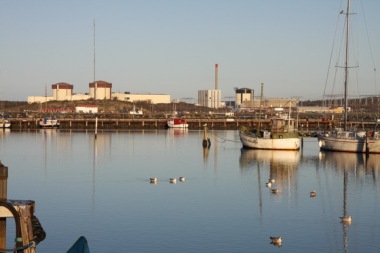An experimental test batch of fuel assemblies is to be supplied to a Swedish reactor under a contract signed between Russian fuel manufacturer TVEL and Vattenfall.
 |
| Ringhals (Image: Annika Örnborg) |
The Russian-developed and manufactured TVS-K fuel will be destined for the Ringhals 3 pressurised water reactor (PWR). The contract provides for qualification of fuel manufacturing at the Novosibirsk Chemical Concentrates Plant (NCCP) in Siberia and the supply of four or eight lead fuel assemblies to Vattenfall. It will be the first time that such fuel will have been licensed for use in a western PWR, TVEL claims.
The TVS-K fuel design draws on TVEL's extensive experience in in the development, manufacture and operation of nuclear fuel for Russian-designed VVER-1000 reactors. In particular, TVEL notes, it uses well-proven design solutions relating to skeleton and spacing grids from VVER-1000 fuel assemblies and utilises Russian zirconium-based alloys as structural materials.
A successful project outcome would enable TVEL to access the lucrative fuel market for western-designed PWRs, broadening Russian presence in the world nuclear fuel market in line with company plans to grow and diversify.
Unlike the end products of other parts of the nuclear fuel cycle, such as natural and enriched uranium, nuclear fuel assemblies are highly engineered products made to customer specifications. These specifications are in turn determined by the physical characteristics of the reactor itself, the operating and fuel cycle management strategy of the utility and licensing requirements. Most of the world's major fuel fabricators are also reactor vendors, or are owned by vendors. Westinghouse, for example, owns a Swedish fuel factory in Västerås which produces approximately 400 tonnes per year of uranium oxide fuel for light water reactors. The market for light water reactor fuel has become increasingly competitive and for most fuel types there are now several competing suppliers, with western suppliers also competing to supply fuel to Soviet-designed reactors.
Researched and written
by World Nuclear News





_13505.jpg)
_87975.jpg)
_67826.jpg)






